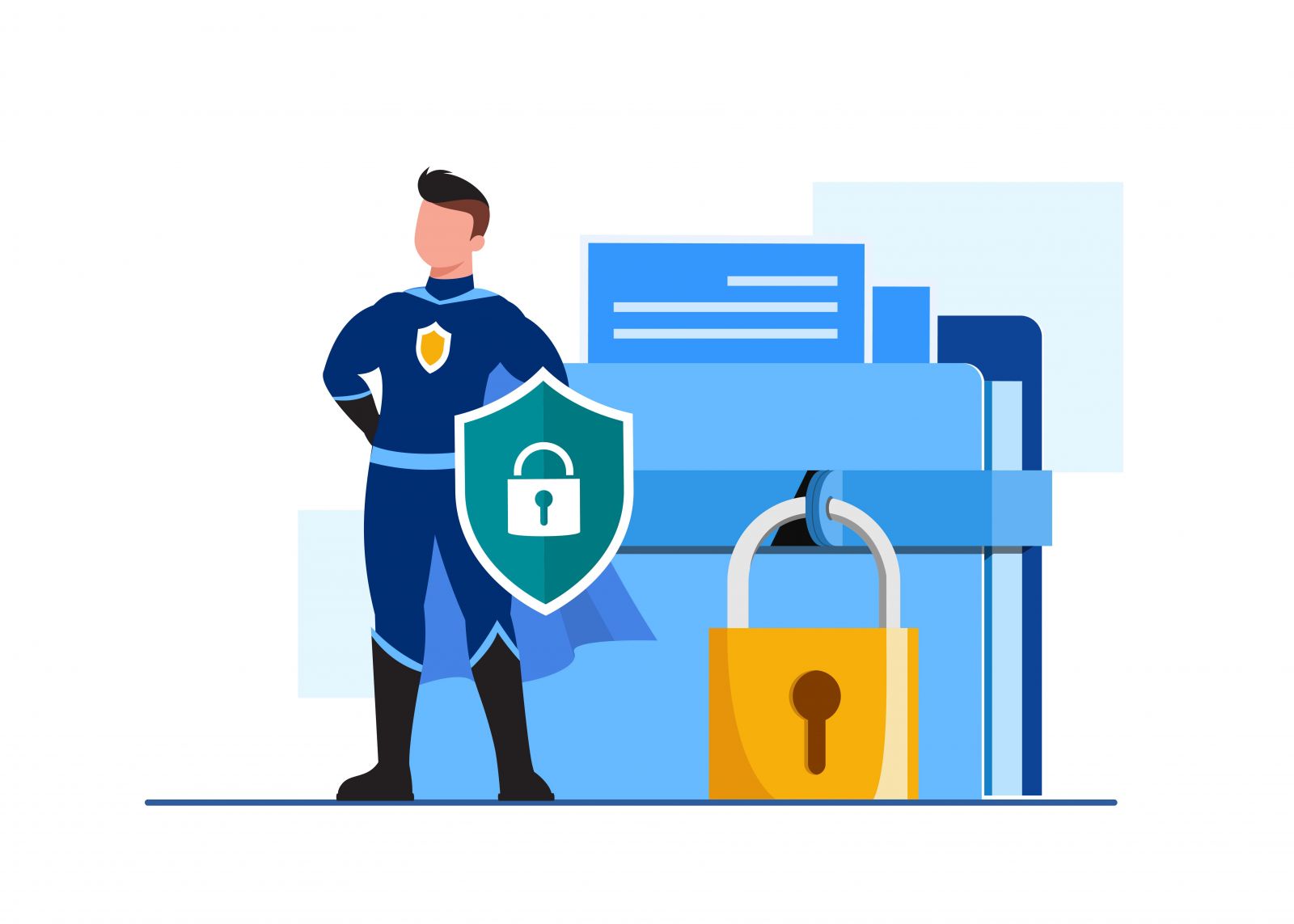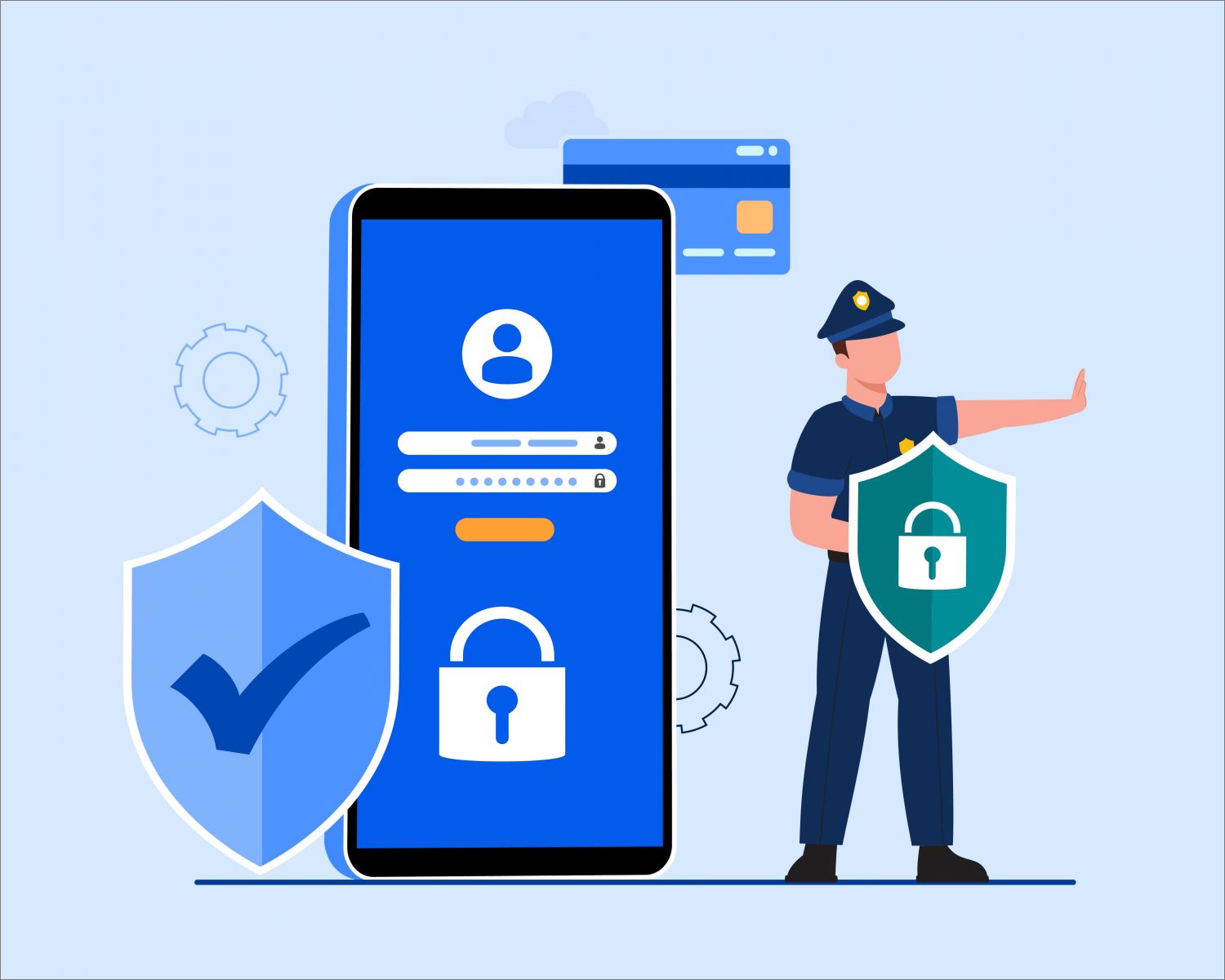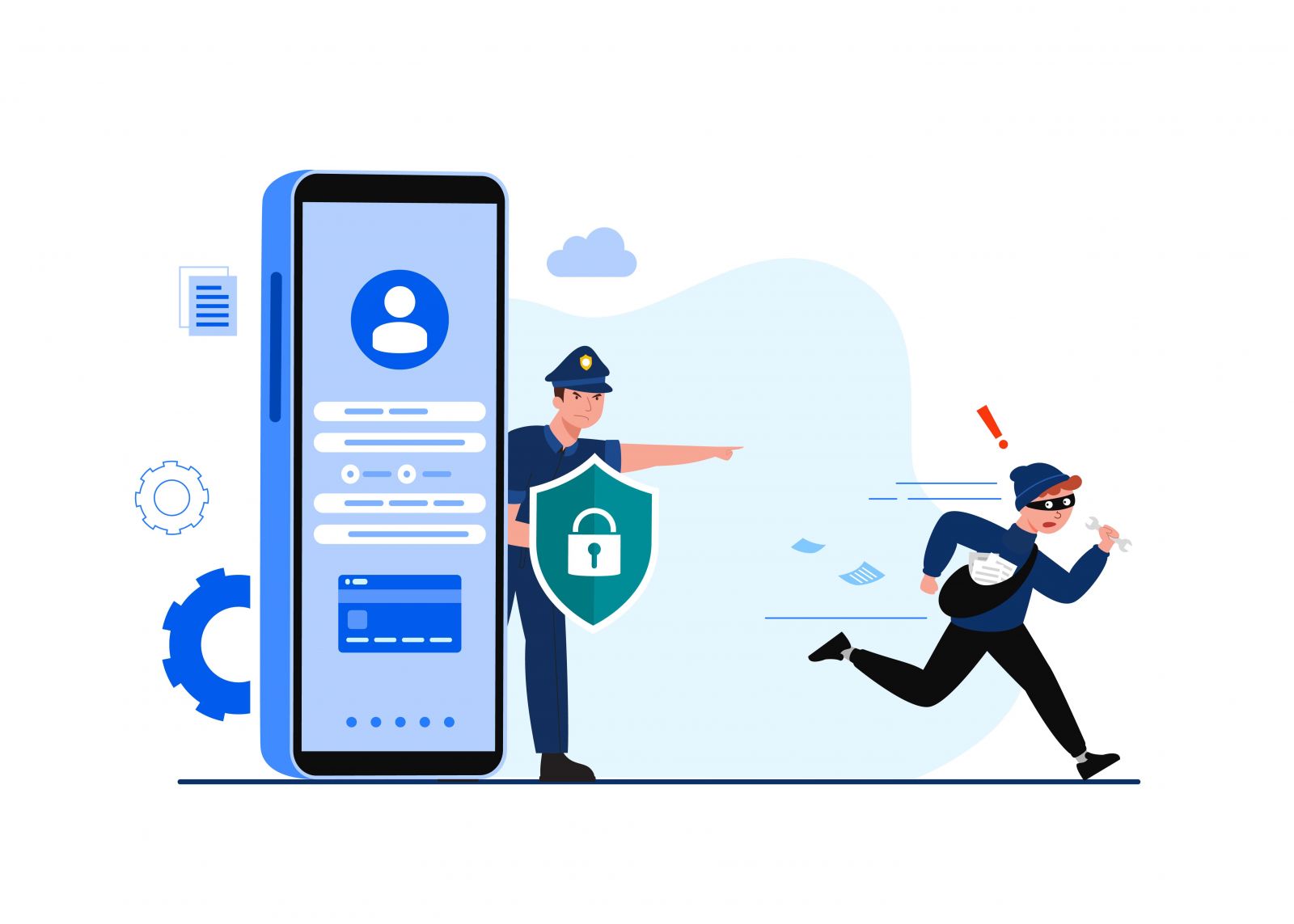More and more apps with different functionalities have emerged to meet the needs of digital customers, including FinTech apps, eCommerce apps, and Super Apps. These apps also gather potentially private data, such as credit card details, credit card numbers, phone numbers, and email addresses, allowing corporations to more accurately assess how their services are doing. It also suggests that hackers might be able to get their hands on that data and illegally use it. As a result, greater security must be focused on while developing mobile apps to guarantee that user data is protected. This post will provide some essential details on mobile app security, including its significance, typical challenges, and workable solutions.
1. Overview of Mobile App Security
Mobile App Security is a method of protecting mobile applications and digital data of users from fraudulent attacks such tampering, reverse engineering, malware, key loggers, and other types of manipulation or interference. As you are surely aware, security is crucial for every company. They will not only lose customers if their mobile app does not protect user data, but they will also lose trust, reputation, cost, and money to fix the problem.
Who would want to use a mobile application that had a security flaw? Who can believe that a mobile app won't steal personal data? Nobody! Therefore, it is essential to consider Mobile App Security a crucial task of business.

2. What obstacles are Mobile App Security facing?
2.1. Multi-factor authentication shortage
Many users use a single, simple-to-remember password for all different kinds of mobile apps in order to make things easier. However, because thieves can readily obtain access, it also poses a risk to your app and personal data. Cyber-attacks can fool you into disclosing your information, including your login credentials, with merely a phone call or phishing email including the dubious hyperlinks.
If mobile apps are not equipped with multi-factor authentication in these situations, the thieves simply require your account name and password to carry out a transaction or obtain your information for illegal use.
2.2. Failure to encrypt properly
By transforming data from its original form, known as plaintext, into a different form, known as ciphertext, encryption is the act of encoding information. Data protection and preventing unwanted access are its objectives. 10.5% of commercial devices and 13.4% of consumer devices, respectively, do not have encryption enabled, according to Symantec data.
The important information will therefore be visible in plain text when hackers get access, making it simple to steal. Inadequate encryption can have detrimental effects, including privacy violations, code theft, the stealing of intellectual property, and eventually reputational harm.
2.3. Reverse engineering
The process of analyzing and understanding how a mobile app functions is referred to as reverse engineering, often referred to as backward engineering. Additionally, it would be used by hackers to access the encryption techniques and change the source code. An attacker could use reverse engineering to use your code against you.
2.4. Insecure data storage
Lack of procedures to control pictures, keystrokes, or data caching, as seen in SQL databases, binary data stores, cookie stores, etc., commonly leads to insecure data storage. Errors in the operating system, frameworks, or in new and jailbroken devices may be to blame for these data storage problems.
Hackers can alter legal software to direct data to their devices once they have access to a database or device. If a smartphone has been jailbroken, even the most advanced encryption security is useless. These tools give hackers the ability to get beyond encryption and operating system limitations.

3. What are potential keys to Mobile App Security?
3.1. Enforce strong authentication
It is true that mobile app development no longer relies solely on passwords to deliver an adequate level of security. Even Google, in 2015, claimed that 250,000 web logins each week are stolen, and the number may be greater right now. As a result, a viable security measure to stop cyberattacks is to add more elements to authenticate an account.
By using different authentication factors, multi-factor authentication (MFA) makes sure that your app does not just rely on the password to confirm the user's identity. The response to a private question, a biometric authentication (such a fingerprint), or an SMS confirmation code can all be utilized as an extra layer of authentication. Commonly, a typical MFA procedure can incorporate the these actions:
-
Users log in with a username and password.
-
Phones may direct message with PINs or verification codes.
-
Users then complete the process of getting access to the app with the verified information.
3.2. Utilize code obfuscation
Obfuscation is the term used in software development to describe the act of making a source code or machine code difficult to comprehend. Why then does it help with mobile app security? In fact, it can be utilized to complicate the reverse engineering process. It is more difficult for a hacker to access the application if they are unaware of how the source code functions.
3.3. Create a solid API security strategy
In almost every aspect of software development, application programming interfaces (API) are one of the most often utilized elements. Instead of needing to create the functionality yourself, they let you integrate it from other publicly accessible services. However, if the API is not permitted, hackers might have unauthorized access to the app. Tech vendors should embrace two API best practices, including Authentication and Authorization, to act as a strong security tool for APIs in order to prevent this. API authorization takes place after the identity os users has been confirmed through authentication and determines whether users or apps are permitted to use the API, whereas API authentication will restrict or delete users who misuse the API.
The following goals are attained with the use of API authentication and authorization:
-
Only allow valid users to use the API
-
Keep track of the people who have submitted requests
-
Track API usage
-
Allow users to have varying levels of permissions
-
Block requestors who exceed the rate limit

4. Final thoughts
It is undeniable that well-developed mobile app development may have a huge positive impact on your companies, assisting in consumer acquisition, revenue growth, and sales. However, everything can be destroyed by a poorly secured app. Thus, to reduce potential hazards, remember to employ experienced developers when creating software.
If you are looking for a trusted IT partner, VNEXT Global is the ideal choice. With 14+ years of experience, we surely can help you to optimize your business digitalization within a small budget and short time. Currently, we have 400+ IT consultants and developers in Mobile App, Web App, System, Blockchain Development and Testing Services. We have provided solutions to 600+ projects in several industries for clients worldwide. We are willing to become a companion on your way to success. Please tell us when is convenient for you to have an online meeting to discuss this further. Have a nice day!












